Carbohydrates: A Fix to Your Blood Sugar
It is okay for all diabetic folks to intake a decent amount of carbohydrates in their diet. Most of you must have been untouched by the fact that you only need to control your carbohydrates instead of altogether avoiding them. Carbohydrate avoidance can block your body’s energy source, and most of your calorie intakes come from carbohydrate foods. Let’s see what the real connection is with Carbohydrates and Blood Sugar.
So, if in any way you are showing a red flag to carbohydrates-STOP and take your share. Carbohydrates needs differ from person to person. Like for most women, it’s three to four carbohydrate choices. For men- four to five carbohydrate choices and so on.
Smarting the Carbohydrates
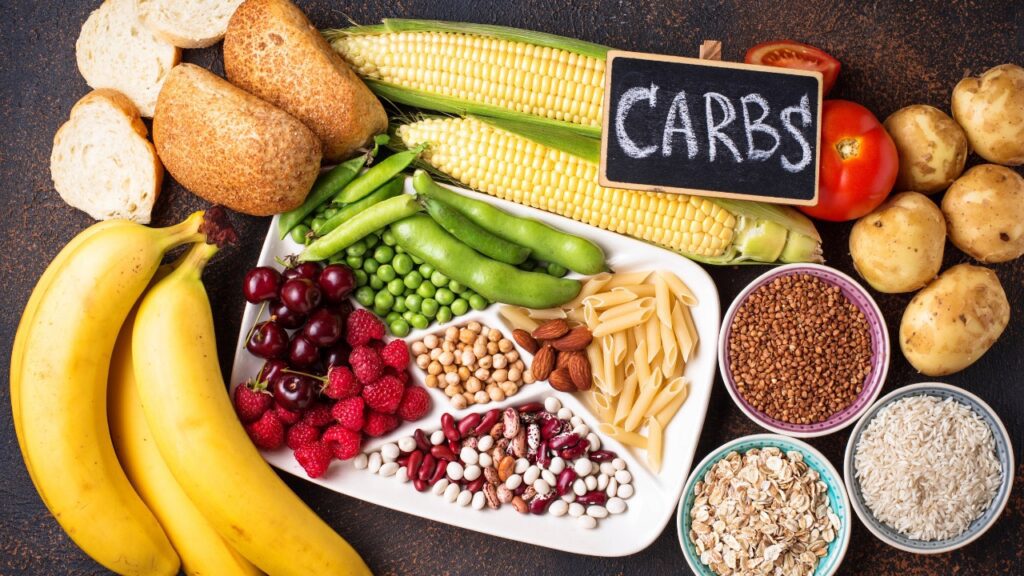
All the carbohydrates that you take, your body breaks it into glucose (sugar) which later increases the level of blood glucose or blood sugar! And that’s what keeps you fueled all day long. Your carbohydrates are crucial in handling diabetes.
After the carbohydrates are broken down into glucose, insulin release by the pancreas help absorb that glucose. So blocking your carbs is not at all a good idea to go forth, and this is where balancing comes into play. Smarten your carbs! Don’t worry, we’ll tell you how! Just keep reading:
Balancing is the Key
After you consume food with carbs, your blood sugar goes up. As long as controlling diabetes is concerned, the only way to get it handled is to balance your body and soul with your exercise with your amount of carbs. Having a proper balance between insulin, carbs intake, and physical activity keeps your blood sugar level inadequate and the standard range healthy for your body.
When blood glucose or blood sugar is too high, it’s known as hyperglycemia. Factors that contribute to hypoglycemia are-
- Not having adequate insulin in your body for glucose processing in the blood.
- The non-reactiveness of your body cells to the released insulin, making extra blood glucose.
- Not being active.
- Not keeping up with your diabetic eating plan.
- Using medications like steroids.
- Facing mental or emotional stress.
On the contrary, when the blood sugar is too low, it’s called hypoglycemia. These “lows” can be the result of the following factors-
- Not having enough carbs.
- Imbalance medication.
- Skipping your meal.
- Increasing your physical activity without adjusting your meals and medications.
- Alcohol consumption.
In a nutshell, your carbs impact your blood sugar or blood glucose. So all you need to master is balancing.
Carbs Calculations:
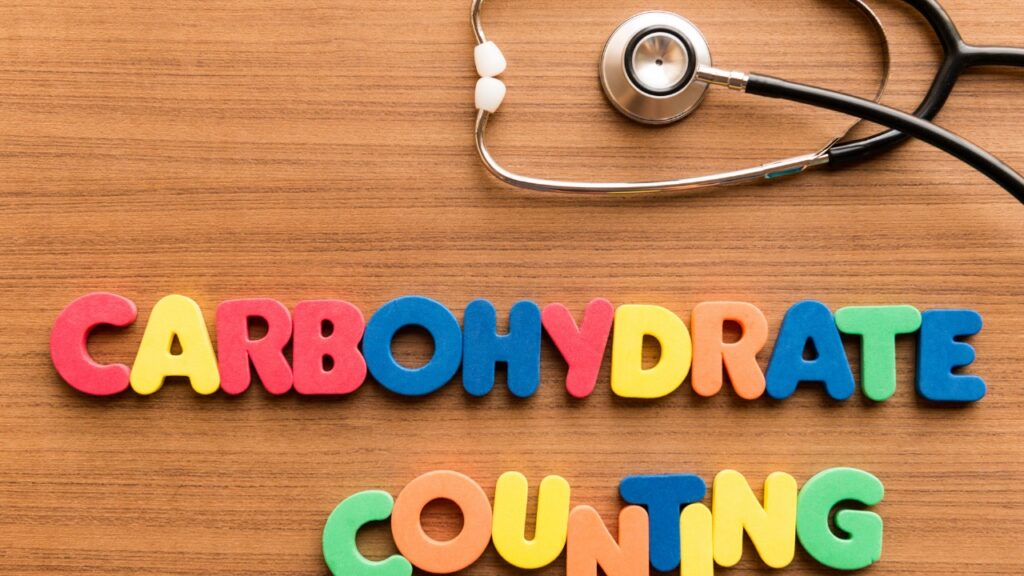
Carbohydrate counting is an approach that helps allocate your carbohydrate and calories throughout the day by sorting out the right amount of carbohydrates per meal.
Your carbohydrate needs to be framed around your calorie intake. Sorting out how many calories you need per day can help you determine the grams of carbs you need.
Step 1- Discover your daily calorie requirement and divide that number in half. That’s precisely the number of calories that must come from carbs.
Step 2- Per gram of carbohydrate means for calories. Divide the number you got in step one by four.
Step 3- Now you have the answer! The final result is exactly how much carbs (in grams) you need per day.
For example, Mary eats approximately 2000 calories per day. So to calculate her carbs, she would divide 2000 by 2, that’s equal to 1000. And then divide 1000 by 4, which is 250. Hence, she should take in about 250 grams of carbs per day.
About Sugars:
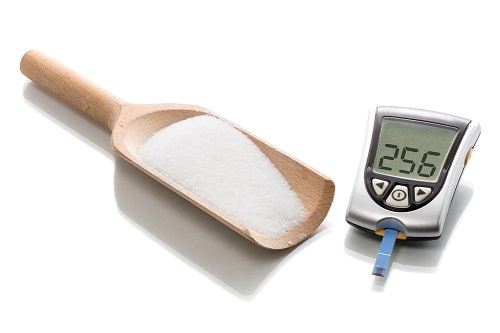
Many research and experiments have found that sugar does not affect blood glucose levels any differently than starches. So you can have your bite on cakes, cookies, candies, and pies as long as they are part of your total carb intake.
Unfortunately, food with excess sugar is often high in fat and calories and eating them often promotes sugar levels and leads to obesity.
Eat MORE of these:
Eat more unprocessed, non-starchy, and whole vegetables. Non-starchy vegetable has a lot of fibre and minimal carbohydrates which will barely impact your blood sugar level.
Eat SOME of these:
Try eating minimally processed carbohydrate food in limit because these will turn out to be your Starchy carbs. It includes:
- Limit fruits like- strawberry, apple, blueberry, cantaloupe.
- Limit whole intact grains such as whole-wheat bread, oatmeal, brown rice, whole grain pasta.
- Starchy vegetables like- pumpkin, corn, sweet potatoes, green peas, beans, black beans, green lentils, kidney beans, and chickpeas.
Eat LESS of these-
Avoid or trying eating less added sugar, refined and highly processed carbohydrates.
- It includes drinks like juice, soda, sweet tea.
- Eat less refined grains such as white bread, de-germed cornmeal, and white rice.
- Sugary snacks like cake, cookies, chips, and candies.
How to determine your intake?
Just by following few simple steps, you can track your carbohydrate intakes:
- Read the labels: when you buy packed food, you can quickly get a chart or table mentioning the number of calories or carbs on the package.
- Calculate grams of your carbs: Use USDA’s national nutrient database for the definitive source (https://fdc.nal.usda.gov). It’s an extensive database updated regularly.
- Maintain a journal: Maybe it’s time for you to keep a diary, not just to write about your day! Keep track of your food, sleeping patterns, mood, physical activities, medications, and so on. It will help you associate your food choices and their effect on your health.
- Keep an eye on sugar: try eating sugary food in the limit. Food items containing added sugar like homey, corn syrup, maple syrup, and table sugar are often deprived of vitamins, minerals, or filling fiber. Calorie intake from sugar leads to heart disease, obesity, and diabetes. So watch out the next time you eat anything sugary!
In Conclusion
With Carbohydrates and Blood Sugar? Track Your Blood Sugar! For all diabetic patients, it should be a priority! The question is: How often you should test your blood sugar? Well, It’s utterly dependent on your treatment plan, so consult your doctor for the frequency of testing your blood glucose level.
The most common time to check your blood sugar level is:
- Before and after your meal.
- Before and after physical activity or exercise.
- At bedtime.
- When you feel sick.
Blood glucose meters help test the blood sugar level to track if the level is in your standard range or not. Seek help from your doctor to determine your range of blood sugar levels.
- Amazon Kindle Edition
- Rothchild, Sascha (Author)
- English (Publication Language)
- 336 Pages - 04/19/2022 (Publication Date) - G.P. Putnam's Sons (Publisher)
- ✅ QUICK AND EASY TO USE: Care Touch blood sugar test kit delivers results in only 5 seconds with just a 0.5µL blood sample. There is no programming needed since our blood sugar monitor kit automatically recognizes batch codes encrypted on Care Touch glucose test strips. Our state-of-the-art glucometer kit with strips and lancets includes single-touch strip ejection, so you can hygienically remove used diabetic test strips.
- ✅ EASY DIABETIC MONITORING: The blood sugar monitor kit with strips is capable of saving up to 300 readings. The blood glucose test kit also provides a continuous 14-day average of your readings, making glucose monitoring easy for you and your healthcare provider.
- ✅ PORTABLE AND HASSLE-FREE: The diabetic testing kit comes with a handy glucometer case, which means you can check your blood sugar level at home or anywhere else while staying organized. The 10-depth lancing device and lancets will help make blood sugar testing almost painless and hassle-free.
- ✅ COMPLETE DIABETIC SET: The glucose meter kit with strips and lancets includes: (1) Care Touch Blood Sugar Meter, (100) Blood Glucose Test Strips for diabetes, (1) Lancing Device, (100) Lancets for diabetes testing, (1) 3 Volt Lithium Battery, (1) Glucose meter case for your blood sugar tester and diabetic supplies
- ✅ WE CARE BECAUSE YOU CARE: You care about your health, and we care about you. Care Touch is committed to providing the best quality blood glucose monitoring systems. Our care doesn’t end when your sugar tester diabetes kit arrives at your door. We’re fully dedicated to your satisfaction. If you have any questions or concerns about your glucose monitor kit with strips and lancets - contact us at any time.
- Amazon Prime Video (Video on Demand)
- English (Playback Language)
- English (Subtitle)
- PUREHEALTH RESEARCH - Blood Sugar Formula 3 Bottles
- MANUFACTURED in the USA! 365-DAY SATISFACTION GUARANTEED!
- A DOCTOR-APPROVED NATURAL FORMULA. Seventeen potent ingredients, each scientifically proven to have a significant effect at helping balance your glucose levels, improve glucose sensitivity, protect delicate cells from free radicals, and energy
- HIGH POTENCY. PureHealth Research experts scientifically enhance CHROMIUM with the Vitamin C, E, Mulberry Leaf, Bitter Melon, Cinnamon, L-Taurine, Berberin and other ingredients which are proven to help you support healthy blood glucose levels
- ONE CAPSULE DAILY, THREE BENEFITS: supports healthy sugar and carb absorption, supports insulin levels, supports cardiovascular health
- Scientifically formulated; great care was put into combining just the right amount of 20 different ingredients into a premium formula designed to support healthy blood sugar levels
- High potency support for 365 days a year; the unique combination in this blend is crafted to help support healthy glucose absorption and glucose production by your body; contains Gymnema, Alpha Lipoic Acid, Yarrow, Licorice, Cayenne, Banaba, Guggul, Bitter Melon, Juniper Berry, White Mulberry, L-Taurine & more
- One capsule twice a day, five benefits; (1) supports normal blood sugar levels; (2) supports weight control and energy; (3) supports healthy sugar and carb absorption; (4) supports insulin levels; (5) supports heart health; daily support for healthy blood glucose levels, 365 days a year
- Reliable; made in a GMP certified facility in America and third party safety tested for purity
- Great value for money; 120 vegetarian capsules for a 60 days supply
Last update on 2022-06-23 / Affiliate links / Images from Amazon Product Advertising API

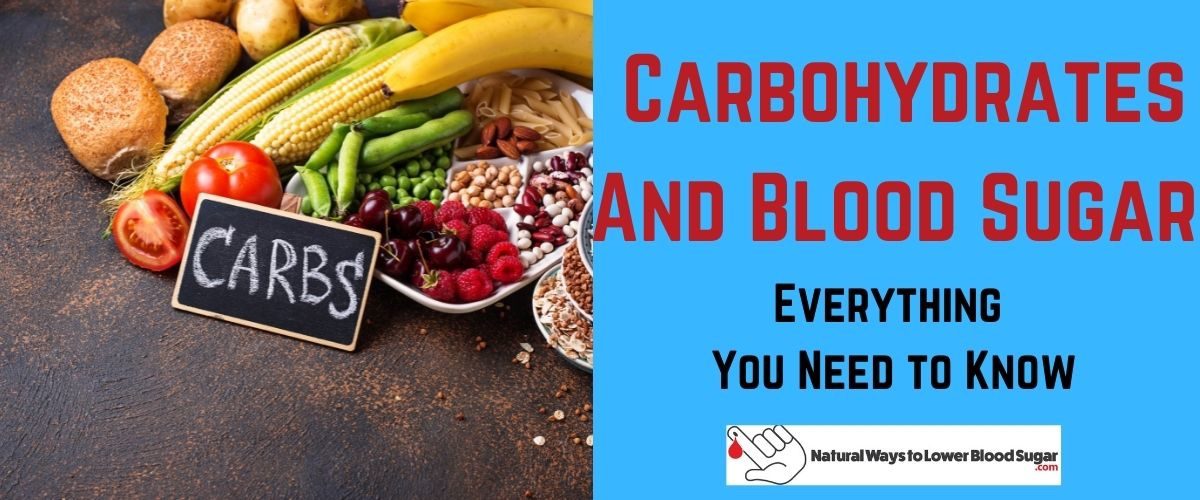




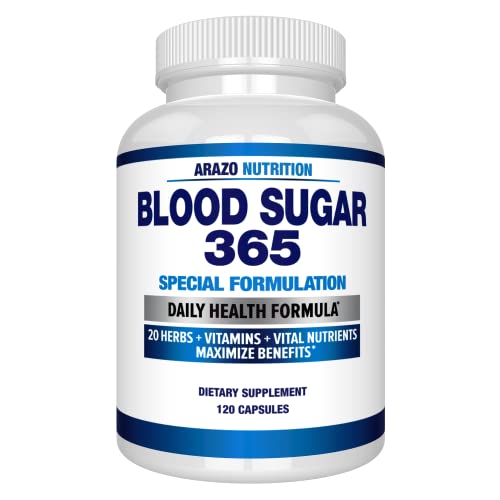

carbohydrates type food is a great way to deal with your blood sugar. make sure balance out what you eat. eat little for every meal or a certain proportion you give yourself, enough to not have you blood sugar high. always be careful on what you eat if you know not to eat certain food don’t eat its not worth it.
We all need some carbohydrates, but not to overdo it.
With diabetes and blood sugar, it’s the carbs that turn into sugar that really affect you.
So while you have to be careful about your sugar intake, your carb intake is at least of equal importance when it comes to your blood sugar numbers.
Be aware of your diet and keep the carbs to a minimum.
Appreciate your feedback 🙂
The way I see it, this was pretty incredible, Rob! I mean, just the readability of this was awesome. It never actually felt like a chore to read the article. So well structured. And such good, thorough content as well. I loved it.
And I definitely agree; balancing is the key. Indeed, I too feel that carbohydrates are crucial in managing diabetes. I loved that list of factors that contribute to hyperglycemia and the other one was great, too. I actually didn’t know that steroids can contribute to increased blood sugar levels. Whereas the fact that mental and emotional stress contributes to high blood sugar levels, that’s just really fascinating to me. I mean, it just goes to show that it’s much more than what we eat that affects our health. And, yes, yes, yes, I like someone who’s advocating for being active. Cheers. 🙂
Hi Matiss, thank you!
I wanted to get across the connection between carbohydrates and blood sugar.
They are a definite factor with your blood sugars. Carbs raise your blood sugar. There’s no doubt about that.
It’s crucial to control the carbs you eat.
And yes steroids do raise your blood sugar as I just experienced myself recently.
Stress kills and exercise is vital to your health so try and avoid stress and keep moving!
Thanks for sharing! I appreciate it 🙂